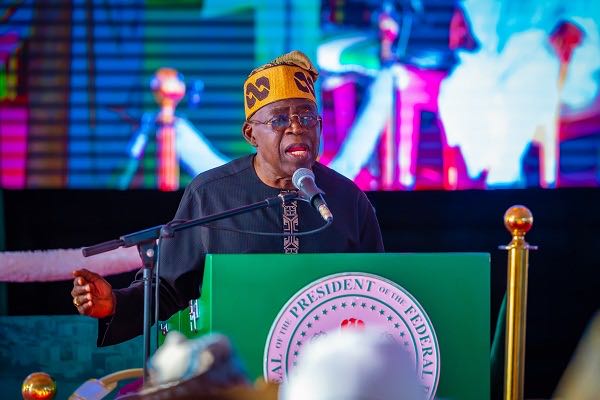…As stakeholders throw weight behind proposed bills
By Abdulateeef Bamgbose
Four months after forwarding the tax reform bills to both chambers of the National Assembly for consideration and passage, President Bola Tinubu has told the Senate to give him workable laws from the bills.
This is even as various stakeholders threw their weight behind the hitherto contentious bills at the public hearing conducted by the Senate Committee on Finance in Abuja, yesterday.
Meanwhile, Arewa Think Tank led by Muhammad Yakubu debunked insinuations that the northern part of the country is against the proposed laws.
President Tinubu’s request for workable laws from the bills which, are the Nigeria Tax Bill 2024; Nigerian Tax Administration Bill 2024; Nigeria Revenue Service Establishment Bill 2024, and Joint Revenue Board Bill 2024, was disclosed by the Chairman of the Senate Committee on Finance, Senator Sani Musa in his remarks at the public hearing.
“I met President Tinubu two days ago on the tax reform bills and he told me Mr Chairman, Senate Committee on Finance, go and do the needful.
“Give me a law that is workable from the tax reform bills I forwarded to the Senate and the House of Representatives in October last year.
“That request by Mr President came at a very auspicious time of this public hearing on the tax reform bills that are not meant to add burden to any section of the country or give undue advantage to any section as well,” he said.
It would be recalled that strident opposition against the bills were raised by various groups last year which made it difficult for the House of Representatives to pass it for second reading, while the Senate managed to do so on November 28 last year.
However, at the public hearing declared open by Senate President Godswill Akpabio, all opposition against the bills melted out, as stakeholders one after the other, threw their weight behind the proposed law.
First to make a submission was the Minister of Finance and Coordinating Minister of the Economy, Mr Wale Edun, who noted that the proposed laws are not aimed at taxing poverty but prosperity.
“The tax reform bills, as repeatedly explained at different fora since their introduction last year, are for the modernisation of our archaic tax laws towards effecting efficiency, equity and economic growth,” he said.
Making similar submission, the Group Chief Executive Officer, Nigerian National Petroleum Company Limited, NNPCL, Mele Kyari said the entire oil and gas industry is well disposed to the reform.
“The proposed tax reform bills to us in NNPCL are necessary for the growth of the economy through more efficient and effective tax collection mechanism.
“As the largest tax payer in Nigeria, NNPCL has studied the reform bills and found it to be reasonable and necessary,” he said.
Toeing a similar line in his own presentation, Chairman of Revenue Mobilisation Allocation and Fiscal Commission, RMAFC, Mohammed Shehu made a U-turn from the earlier stance on the bills by supporting it 100 percent.
He said: “RMAFC is in support of the proposed tax reform but wants adjustments in the area of Value Added Tax, VAT, distribution to subnationals.
“We hope that the proposed reform will address the issue of endless revenue remittance reconciliation with NNPCL and others.”
The Chairman of Fiscal Responsibility Commission, Victor Muruako also supported the proposed reform bills by declaring that they are in tandem with the spirit and letters of the Fiscal Responsibility Act 2007.
In their separate presentations, the convener of Arewa Think Thank and representative of the President of the Supreme Council for Sharia in Nigeria, Professor Mohammed Dogarawa debunked the insinuation that the north is against the reform bills.
Specifically, Yakubu said “it is not true that the north is against the tax reform bills. We have seen the benefits and sensitised our people on them.”
Earlier in his remarks before declaring the public hearing open, Akpabio said “the challenge before us transcends the simple act of passing new laws; it is about constructing a tax system that inspires confidence, promotes development and fuels national growth. We cannot afford to be fragmented in our approach to revenue generation. Instead, we must come together — federal, state and local governments, alongside the private sector and civil society — to create a tax system that truly works for all.”





